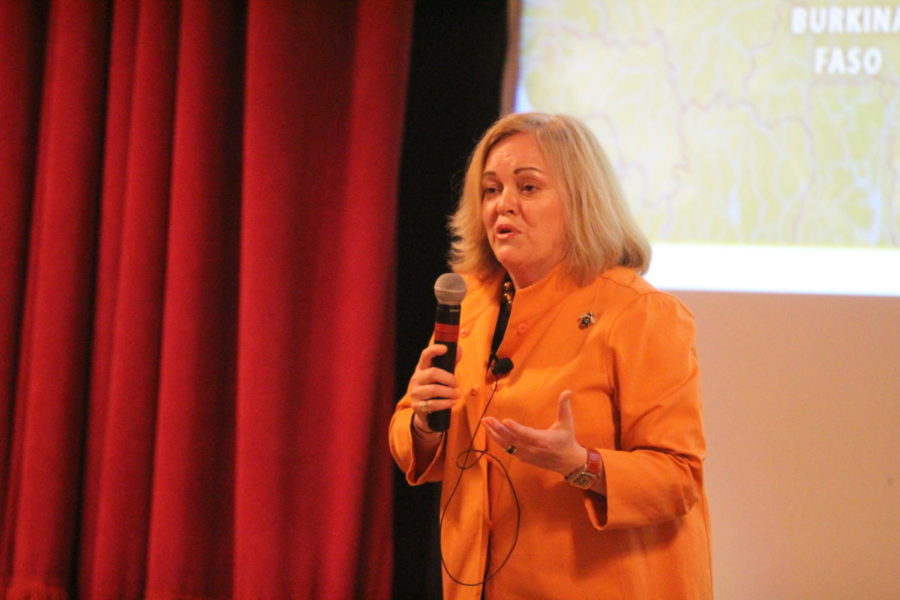Former U.S. diplomat addresses United State’s complex relationship with Middle East
Former U.S. Ambassador to Libya Deborah Jones speaks to a packed Great Hall in the Memorial Union on April 3. Jones talked about America’s relationship with the Middle East and about her own experiences as the former ambassador to both the State of Kuwait and to Libya.
April 3, 2017
The relationship between the United States and the Middle East is a constantly changing and often complex issue, but Deborah Jones has firsthand experience.
The former diplomat spoke to an audience in the Great Hall of the Memorial Union on Monday about the ever-changing relations between the two countries. She touched on topics ranging from the history of many current issues, what she thought pushed American policy in the past and the Arab Spring.
“I like to think that everything [the United States] tries to do around the world, and with ourselves, should boil down to making sure people can work and love with dignity,” Jones said.
Jones is the former U.S. ambassador to Libya, stepping down after more than two years at the position in November 2015. She has 34 years of foreign diplomacy experience. The majority of that time was spent in the Middle East.
Pulling from her vast store of knowledge and experience, Jones was able to share her views on many historical events, and current conflicts, relating to the United States and its involvement with the Middle East.
One of Jones’ focus was that America has always used its coastal availability at the forefront of foreign policy, and many issues center around maritime trade.
“One debate is, is American security about making sure we’re an island with walls, or is it about making sure prosperity is expansive enough that people don’t have to come to find work here that they can’t find elsewhere,” Jones said.
While discussing the Arab Spring, Jones talked about how current technology and social media have transformed how governments in the Middle East are treated.
“Technology has always been a great disruptor … but now the electron is the accelerator,” Jones said.
Jones said she was speaking completely from her own sentiments and independent beliefs, and at times did not hold back criticism of the current U.S. administration’s foreign policy.
She emphasized that in the past, foreign policy has always been a bipartisan issue for the United States. She said she was worried that there is too much partisan involved.
The audience stayed engaged with Jones and enjoyed hearing about these issues from her perspective. One student enjoyed how she discussed the nuclear deal with Iran.
“She made an interesting point when she said, ‘We’ll never be able to take away the knowledge about nuclear weapons that they possess,’ so we have to work to reconcile past conflicts so they have a reason not to be aggressive,” said McKinley Nelson, senior in journalism and mass communication.







